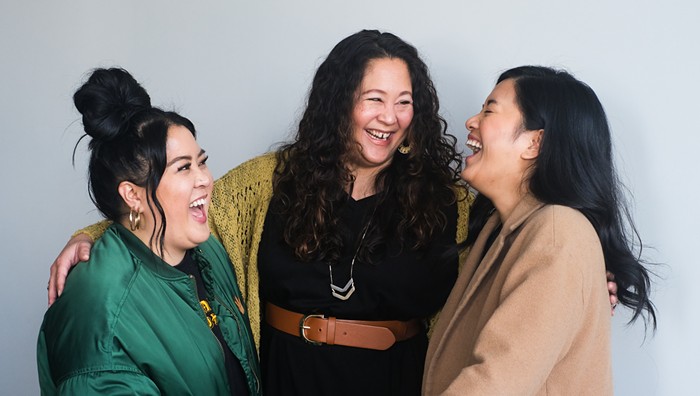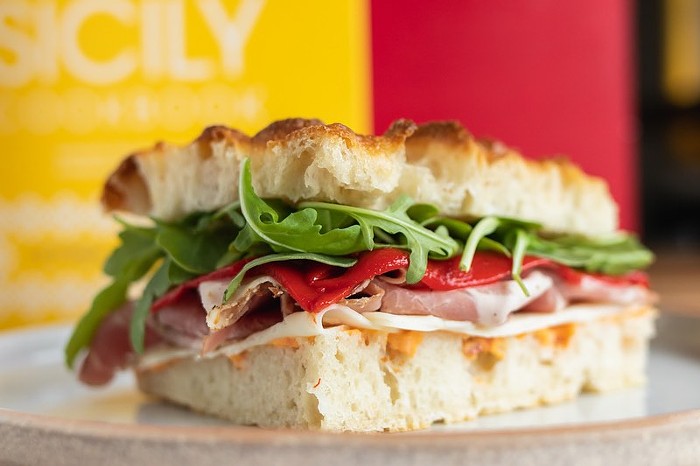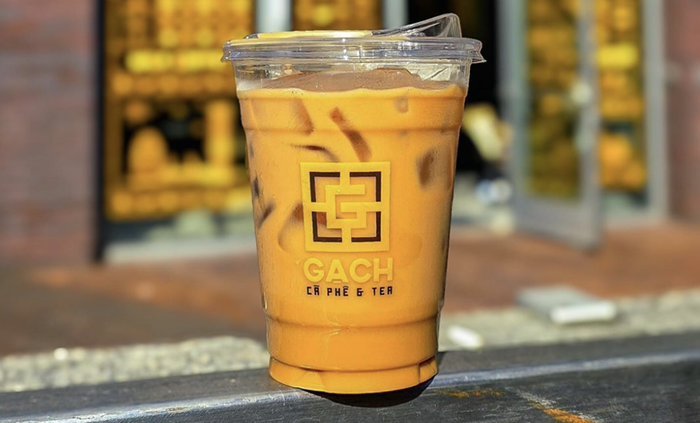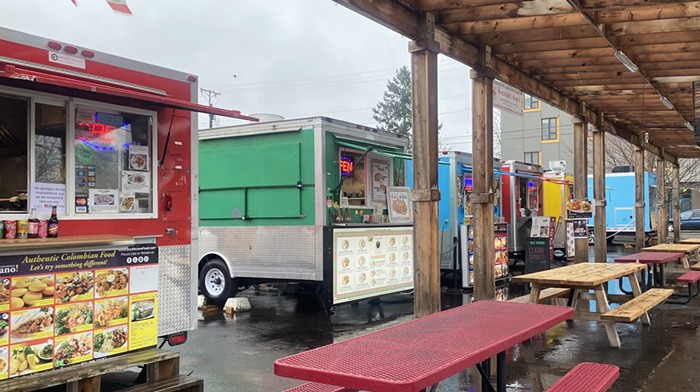
Three Starbucks stores in the Portland area are joining stores across the country in filing for union elections in one of the biggest labor movements to hit the food service industry in years.
If the National Labor Relations Board (NLRB) approves elections, workers at the three locations could receive ballots as soon as a month from now—and that may just be the beginning: at least two more Starbucks stores in the Portland area are preparing to file for their own union elections in the coming weeks.
A store in Buffalo, New York became the first Starbucks shop in the nearly 51-year history of the company to unionize in December, joining Workers United, an affiliate of the Service Employees International Union (SEIU). That campaign piqued the interest of workers in Portland and beyond.
“After we had heard stuff about Buffalo, and we had a store meeting, and everyone was really curious about — what is this thing that is happening?” said Sydnee Smith, a barista at a Starbucks on Cedar Hills Blvd. in Beaverton. “How did it happen? And is it possible to actually… be able to replicate what they did in Buffalo here?”
Since then, the national movement to unionize Starbucks workers has quickly built momentum. A second Buffalo store voted to unionize in January, and union elections are underway at three more Buffalo area locations this month. Now, more than 50 locations in 19 states are attempting to unionize.
In a statement provided to the Mercury, a Starbucks spokesperson said that the company is “listening and learning from the partners in these stores as we always do across the country” but will not voluntarily recognize unions at the three Portland area locations. Starbucks has yet to recognize any of its stores’ unions.
Two of the Portland-area stores that filed to unionize with the NLRB on Monday are located in Beaverton, one on Cedar Hills Blvd and the other on SW Walker Rd. The other is in Southwest Portland on Garden Home Rd. While each of the three area stores have filed individually, they all see themselves as part of a nationwide movement.
Quentin Kanta, a barista at the SW Walker Rd store, said that when he and his co-organizer first reached out to Workers United about the possibility of starting a unionization push at the their location just under a month ago, the national union immediately set them up on a Zoom call with workers at a unionizing store in Hopewell, New Jersey.
Kanta and his co-organizer have since met with workers at the first Starbucks store in Seattle to go public with their unionization campaign, as well as workers at one of the three locations in Eugene that has filed for a union election.
Those meetings prepared the workers at Kanta’s store for what they’re about to experience in the coming weeks—covering everything from going through the NLRB hearing process to dealing with anti-union efforts from Starbucks management.
“[Starbucks] has been running the same playbook for every store that announces—which makes it really easy for us, because we can look at these other stores, look at how their baristas have responded, and know how we should do it,” Kanta said. “Because Starbucks isn't changing their strategy at all.”
Starbucks has softened its anti-union campaigning since its failed attempt to stop the unionization push in Buffalo, where former chairman and CEO Howard Schultz compared Starbucks’ selflessness to that of prisoners en route to Nazi concentration camps in a speech to workers, but workers expect a serious lobbying effort in the coming weeks.
“We’re definitely expecting some one-on-one conversations with higher ups, sometimes even two-on-ones, where they do two higher ups with one barista,” said Jaiden Brougham, a barista at the Garden Home Rd. store. “That’s something that we’ve been prepared for by previous Starbucks [locations], like in Buffalo.”
The workers clearly have local management’s attention. Starbucks’ Southwest Portland-area district manager made a rare appearance at the SW Walker Rd. store following the unionizing announcement on Monday morning. The company’s regional manager showed up too. They both visited the Garden Home Rd. store on Tuesday.
“None of us had met her before,” Kanta said. “We didn’t know anything about her. All we knew is we saw her walk in with her Gucci bag, and we all had a laugh about that. It was very funny to us—they’re trying to be relatable, and that’s the least relatable thing you can do in front of baristas who are making barely minimum wage.”
Kanta said he doesn’t believe local Starbucks leadership expected Portland area stores to join in the unionizing movement.
“As far as we’ve been told, they were completely blindsided,” Kanta said. “Nobody in our district saw this coming.”
That reaction may speak to a disconnect between how workers and management perceive working conditions at Starbucks, which, for many years, had a reputation as a notably worker-friendly chain that offered its employees health care coverage, education credits, and other benefits.
The Starbucks spokesperson said that those benefits are a key reason why it feels that a union is not necessary at the company.
Kanta, who is from southern Oregon and worked at a Starbucks store in Grants Pass before moving to the Portland metro area for school, said that his first Starbucks job was the best he’d ever had. But he and others feel that Starbucks has not lived up to its purported values during the COVID-19 pandemic.
“Part of the reason we’re so frustrated is that Starbucks paints itself as this progressive corporation that gives benefits and good pay, but… I could go to Panda Express down the street and make more than what I make right now,” Smith said. “All these other corporations are starting to give benefits [and] increasing pay.”
Starbucks’ sales fell during the spring of 2020 when many of its stores shuttered due to COVID, but sales rose to a record level last summer with the distribution of vaccines and reopening of much of the economy. Workers want to share in those profits—and have a bigger say in negotiating key benefits, hazard pay, and COVID safety precautions.
The workers are confident that they’ll win their elections and have that chance. Kanta said that the majority of baristas at his store signed union cards, while others who did not sign have expressed their openness to ultimately voting to unionize as well.
Brougham, meanwhile, said that 18 of the 20 Garden Home Rd. store’s baristas support the unionization effort and the majority have signed union cards. The numbers are similar at the Cedar Hills Blvd. location.
Part of that confidence stems from the level of community support that workers at the unionizing locations have already felt from other unions and progressive and socialist organizations, many of whom have been involved in labor struggles with the city and corporations like Kaiser, Nabisco, and Kroger over the last year.
The Walker Rd. store shares a parking lot with Fred Meyer workers, many of whom spent time in the Starbucks while on strike in December. That experience made an impression on Starbucks workers.
“Portland has always been a labor town, but union strength is like a muscle—you need to flex it in order to show the power, but you need to build it up and maintain it over time,” Kanta said. “So I think over this past year, we’ve seen labor waking up in Portland and is starting to flex its power a little bit.”



















